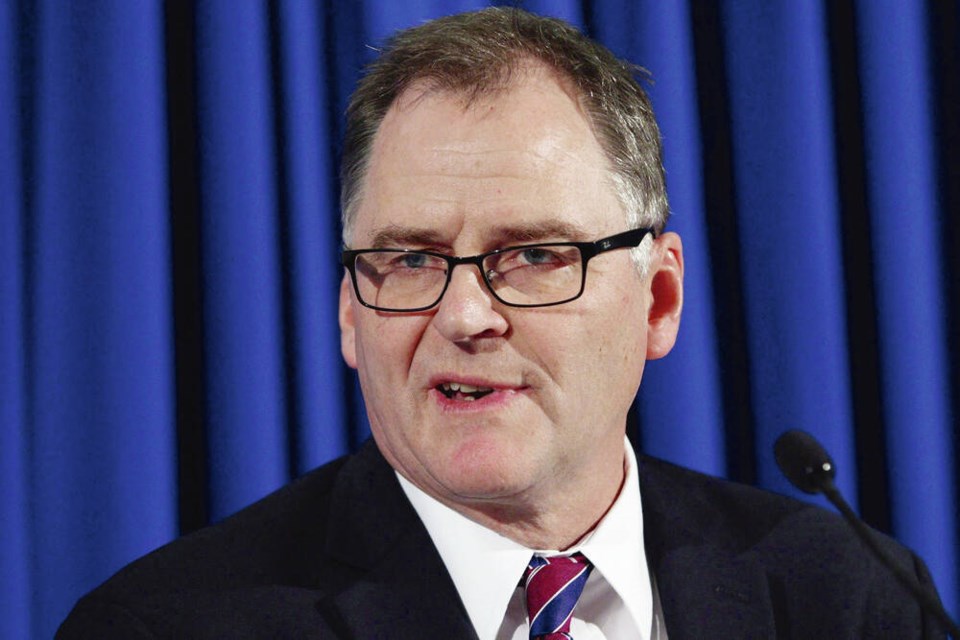Seventy years after about 200 children were snatched from their homes and confined for several years in a remote institution in the Kootenays, the government of B.C. was on the brink of issuing an apology this week.
But it was cancelled at the last minute, leaving the now-elderly group right where they have been for decades — waiting for a simple “we’re sorry” from the province.
It doesn’t appear to be an about-face, or a double-cross. It was just bad scheduling and a belated recognition that the atonement for the treatment of Doukhobor children in the 1950s would not work as originally planned.
But it is still a shame. It was discourteous to throw the event together with so little thought. Officials gave the dwindling group of survivors little time to prepare and only offered a webcast of the planned event.
Cancelling it at the last minute compounded that.
Jay Chalke is the latest in a series of B.C. ombudspersons who have handled this file over two decades. He said Friday the incident was very unfortunate, and expressed frustration and disappointment at the latest in a long series of stalls and delays.
“They are elderly rural people, many living in isolation. They don’t have any lobbyists, or power. And they don’t have a lot of time left.”
Premier David Eby, to his credit, owned the blunder. He said it was his office’s responsibility and the cancellation amounted to “recognizing when you are screwing up …”
It looks like his government was so busy cutting off debate and jamming housing bills through the last week of the legislature sitting, it left the apology too late.
They notified survivors on Monday to watch a livestreamed apology on Tuesday, but it was cancelled abruptly.
The Ombudsperson’s office first raised the issue in 1999, when Dulcie McCallum addressed how the children were taken into confinement between 1953 and 1959.
Their parents were Sons of Freedom Doukhobors, a religious sect originating in Russia.
The children were apprehended because their parents had either refused to send them to school or were in prison due to protests arising from their radically pacifist religious beliefs. The protests, some of which involved parading nude and setting fires, drew national attention.
McCallum found the children were physically and psychologically harmed while confined in a former tuberculosis sanatorium and isolated from their parents and community. Many had little or no English and no Russian translation was available.
Some of the apprehensions involved terrifying midnight raids by RCMP officers.
The parents eventually agreed to send the kids to school and they were freed by 1959.
They never got an explanation or an offer of compensation and lived in silence with their pain and humiliation for decades, McCallum said.
“They were caught in a web of conflicting values and political turmoil involving their parents, religious leaders, police and government,” she said.
“They are, in my opinion, entitled to an explanation, an apology and compensation for their confinement in a form that permits them the opportunity to heal.”
The report prompted some government overtures to the victims. Meetings were held, explanations were offered and officials provided acknowledgements and regrets, along with some counselling.
There was a more formal statement of “regret” in the legislature in 2004. A court decision cleared the province of legal liability a year later. In 2006, the Apologies Act law resolved legalities and made government apologies for historic wrongs simpler.
But remarkably, the Doukhobor one went unresolved.
The matter arose again in 2020, when a framework for an apology was set out. But it took until this year, when Chalke prompted the government again to resolve the grievance, that a commitment to apologize was made. A recognition package has been crafted, including individual payments and a community contribution.
But 24 years after the apology was urged and 19 years after the first expression of regret, it stalled out yet again.
They’ll try to pull something together early next year.
But by then there might be even fewer people around to hear it first-hand than there are now.
As Chalke warned last summer: “It’s not too late to say ‘I’m sorry,’ but it soon might be.”



